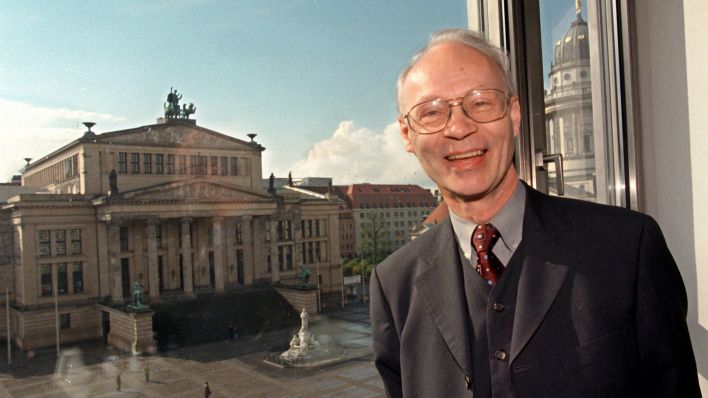Obituary for Hans Joachim Meyer – He never denied his “Ossi heart”.
Sun 03/31/24 | 3:06 p.m. | By Vera Kröning-Menzel
dpa/Grimm
Image: dpa/Grimm
Hans Joachim Meyer experienced German integration as what he called an asymmetrical unity. And: He remained active until retirement age. The GDR’s last education minister died on Friday at the age of 87. An obituary. By Vera Kröning-Menzel
“If you want to understand what I did and thought from 1990 onwards, you have to know my path as a Catholic in the GDR,” writes Hans Joachim Meyer in his biography entitled “In No Drawer”, which he published in December 2015.
Minister for science and education in the last GDR government, science minister in Saxony and for many years president of the Central Committee of Catholics – these were just a few aspects in the life of Hans Joachim Meyer, who was both an idealist and a realist.
Forced to deregister after three years
After three years, the avowed Catholic was forcibly deregistered because of his lack of connection to the working class. Meyer moved to Humboldt University and studied English and history, where he later took on managerial positions in the field of foreign languages. The professor led his life with a demonstrative distance from the ideological demands of the GDR. He never denied his “Ossi heart,” as he called it.
In his mid-fifties, Meyer began his political career in the CDU in 1990 as Minister of Education under Lothar de Maizière – the unexpected fulfillment of his old dream of being able to act and shape politics. It was particularly important to him to shape the urgent educational reforms together with those affected.
Meyer experienced German growing together as what he called an asymmetrical unity.
Active until retirement age
As Saxon State Minister for Science and Art, Meyer saw one of his tasks as ensuring that Saxon universities received international recognition. Successes that he recently saw threatened by the rise of xenophobia in Saxony.
Meyer had been a committed Catholic since his youth. In 1997 he was elected President of the Central Committee of German Catholics (ZdK). Meyer made progress in ecumenism – such as the first Ecumenical Church Congress in Berlin in 2003.
His departure as ZdK president in 2009 had a bitter aftertaste for Meyer. The bishops rejected his successor proposed by the ZdK – an affront to the Catholic lay movement. During Meyer’s time there were also significant conflicts with the bishops surrounding Donum Vitae, the pregnancy counseling association founded by the ZdK.
Even in retirement, Meyer remained active. In the Archdiocese of Berlin he opposed planned community mergers and the reconstruction of the Berlin bishop’s church, St. Hedwig’s Cathedral. His wife Irmgard and mother of his children gave Hans Joachim Meyer, as he said, cohesion, exchange and mutual reinforcement for more than half a century.
Contribution by Vera Kröning-Menzel
